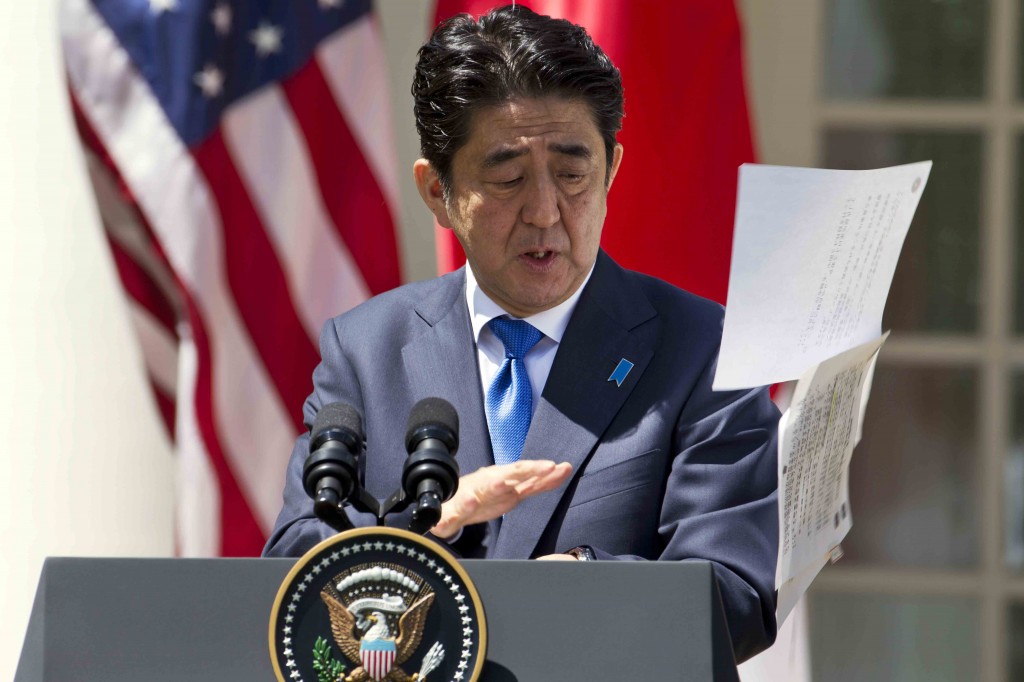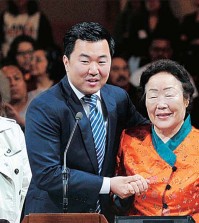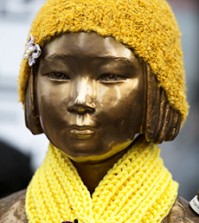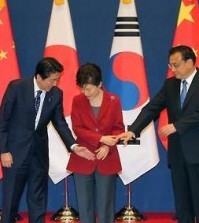- California Assembly OKs highest minimum wage in nation
- S. Korea unveils first graphic cigarette warnings
- US joins with South Korea, Japan in bid to deter North Korea
- LPGA golfer Chun In-gee finally back in action
- S. Korea won’t be top seed in final World Cup qualification round
- US men’s soccer misses 2nd straight Olympics
- US back on track in qualifying with 4-0 win over Guatemala
- High-intensity workout injuries spawn cottage industry
- CDC expands range of Zika mosquitoes into parts of Northeast
- Who knew? ‘The Walking Dead’ is helping families connect
[CNN] Time for Abe to apologize, properly
Japanese Prime Minister Shinzo Abe reacts as his papers are blown into the air in a gust of wind during his joint news conference with President Barack Obama, Tuesday, April 28, 2015, in the Rose Garden of the White House in Washington. (AP Photo/Jacquelyn Martin)
In 1944, 16-year-old Yong Soo Lee of Taegu, Korea, was lured by a friend of hers to meet with an older Japanese man.
The man took the two of them, and three other teenage girls, by train, then ship, to Taiwan. There, the girls were forced into sexual slavery, serving four to five Japanese soldiers every day for a year. Lee suffered beatings and torture, was infected with a venereal disease, was fed paltry amounts of food, faced temperatures so cold that ice formed on her body, and was never allowed outside. Only the end of World War II brought her relief.
Lee is just one example of the over 200,000 women from Korea, China, the Philippines, Indonesia, and other Asian nations, who were kidnapped and sexually enslaved by the Japanese Imperial Army during World War II. These so-called “comfort women” suffered unimaginable physical, emotional, and psychological trauma.
When Japanese Prime Minister Shinzo Abe addresses a Joint Meeting of Congress on Wednesday, he has an opportunity to do right by these women, and issue an unequivocal and irrefutable apology — something that carries the weight of his government.

















